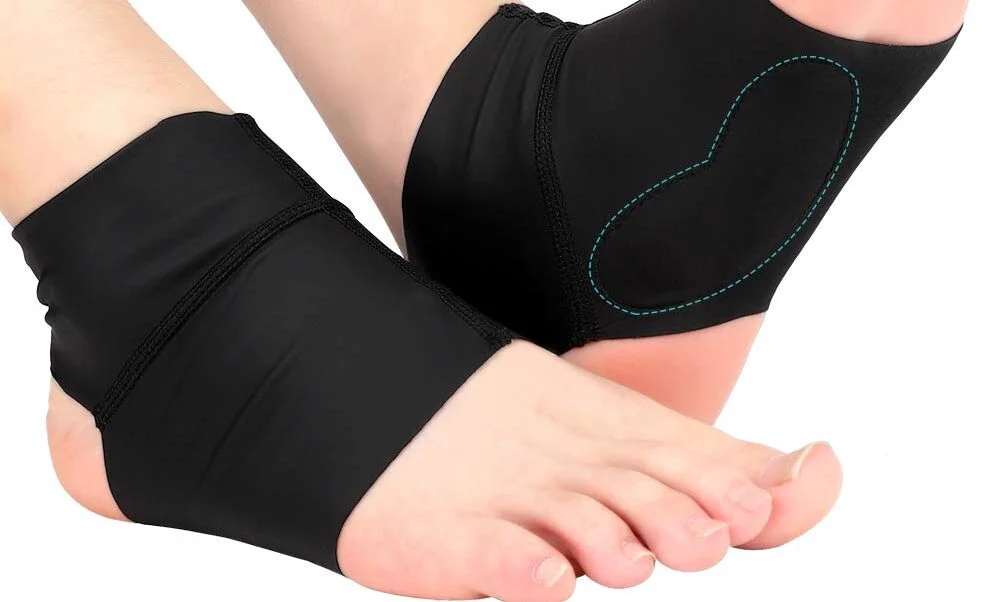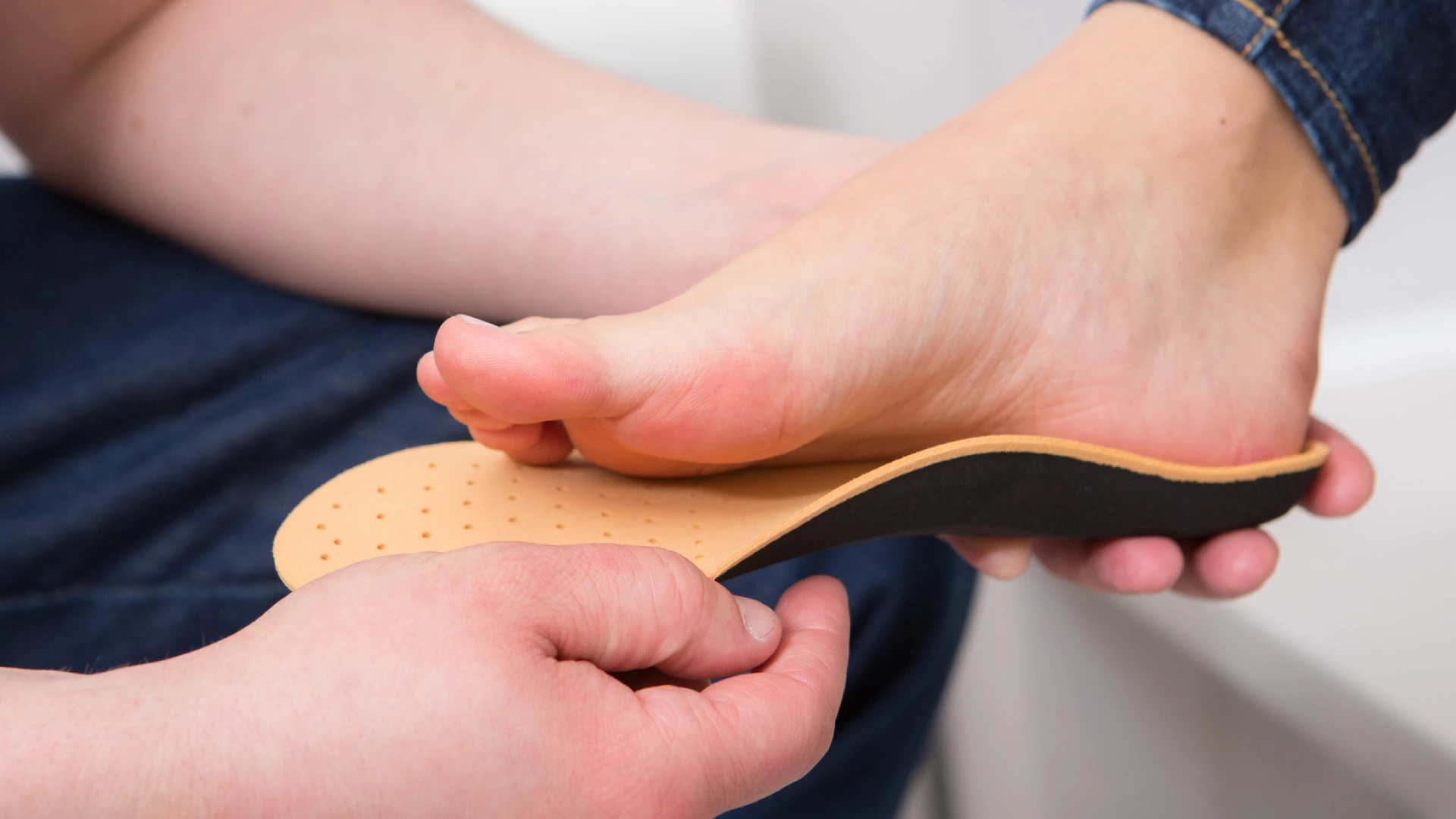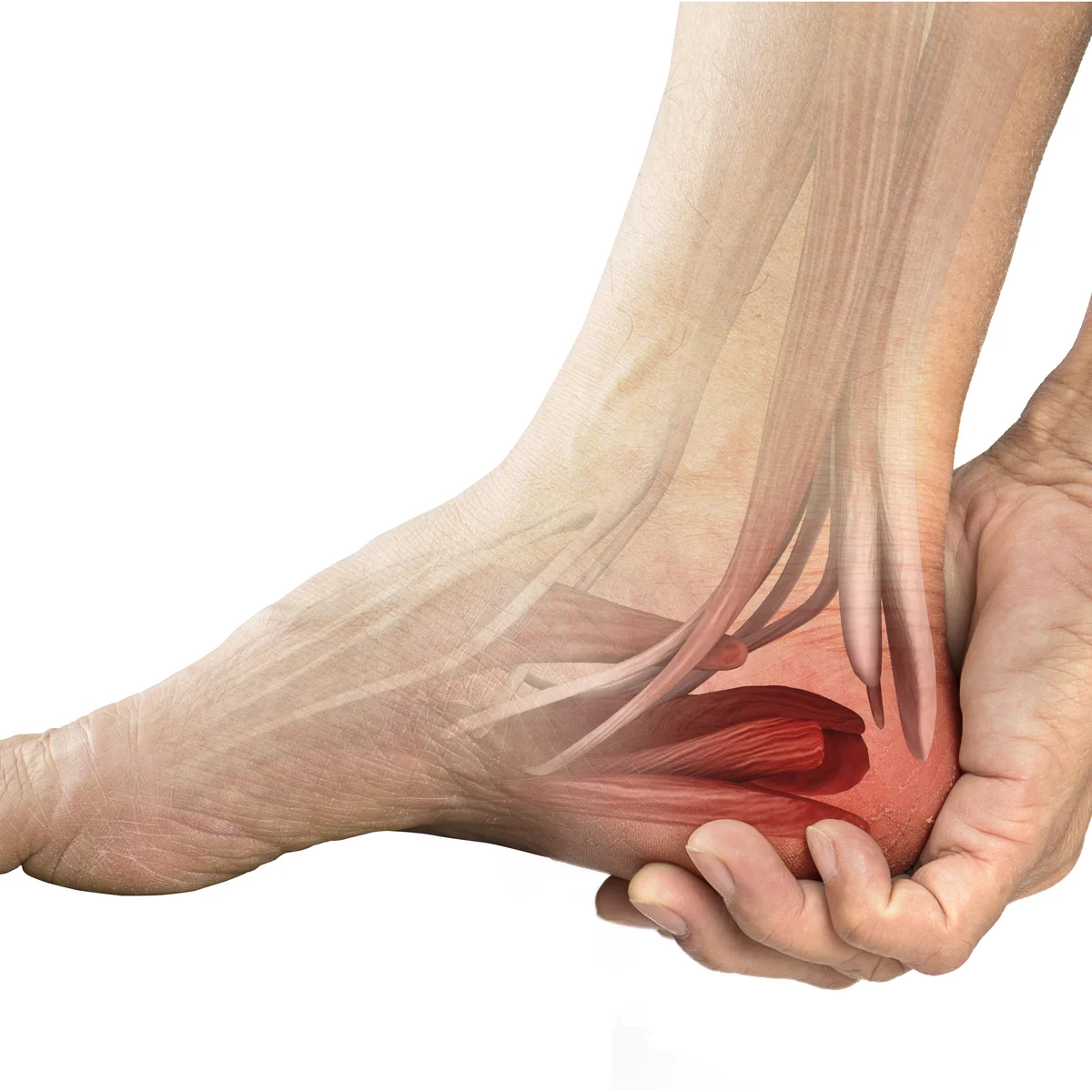Plantar Fasciitis
What is Plantar Fasciitis and What Causes It?
Plantar fasciitis is a condition where the plantar fascia, a thick band of tissue running along the bottom of the foot from the heel to the toes, becomes inflamed. This inflammation can lead to heel pain, particularly with the first steps in the morning. Common causes of plantar fasciitis include:
- Overuse: Repeated stress from activities like running or prolonged standing.
- Foot Structure: Issues such as flat feet, high arches, or abnormal walking patterns can put extra strain on the plantar fascia.
- Improper Footwear: Shoes lacking proper support or cushioning.
- Obesity: Excess weight increases stress on the feet.


What Are the Symptoms of Plantar Fasciitis?
Typical symptoms of plantar fasciitis include:
- Heel Pain: Sharp or aching pain in the heel, especially noticeable in the morning or after periods of rest. Debilitating pain at the end of the day where you find you simply can not be on your feet any longer.
- Foot Pain: Discomfort in the arch of the foot.
- Stiffness: The affected area may feel stiff and sore, particularly after rest.
How is Plantar Fasciitis Diagnosed?
Diagnosis of plantar fasciitis involves:
- Medical History and Physical Examination: Discussing your symptoms and examining your foot to pinpoint areas of pain and inflammation.
- Imaging Tests: X-rays or MRI may be used to rule out other conditions like fractures or tears.
- Comprehensive Investigation: It is also important to consider other potential sources of strain on the plantar fascia, including issues with the back, hips, or knees that could contribute to the condition.


What Are the Treatment Options for Plantar Fasciitis?
Treatment aims to relieve pain and promote healing, and includes:
- Conservative Treatments:
- Rest and Ice: Reducing activity and applying ice can help with pain and inflammation.
- Stretching Exercises: Targeted stretches for the calf muscles and plantar fascia.
- Orthotics: Custom or over-the-counter supports can alleviate pressure on the plantar fascia.
- Medications: Pain relievers and anti-inflammatory drugs can manage symptoms.
- Interventional Procedures:
- Corticosteroid Injections: Help to reduce inflammation in the plantar fascia for temporary relief.
- Newer Treatment Options:
- Regenerative Medicine: Techniques like Platelet-Rich Plasma (PRP) therapy and Stem Cell Therapy can enhance healing and reduce pain through natural regenerative processes.
- Shock Wave Therapy: This non-invasive treatment uses sound waves to stimulate healing and reduce pain in the plantar fascia.
- Botox Therapy: Botox injections can relax the plantar fascia and help alleviate pain, especially in cases resistant to other treatments.
Plantar Fasciitis
At our practice, we are dedicated to exploring both traditional and innovative treatments to find the best solution for your plantar fasciitis. Our approach incorporates the latest advancements in therapy, and many patients find significant relief through these options.
